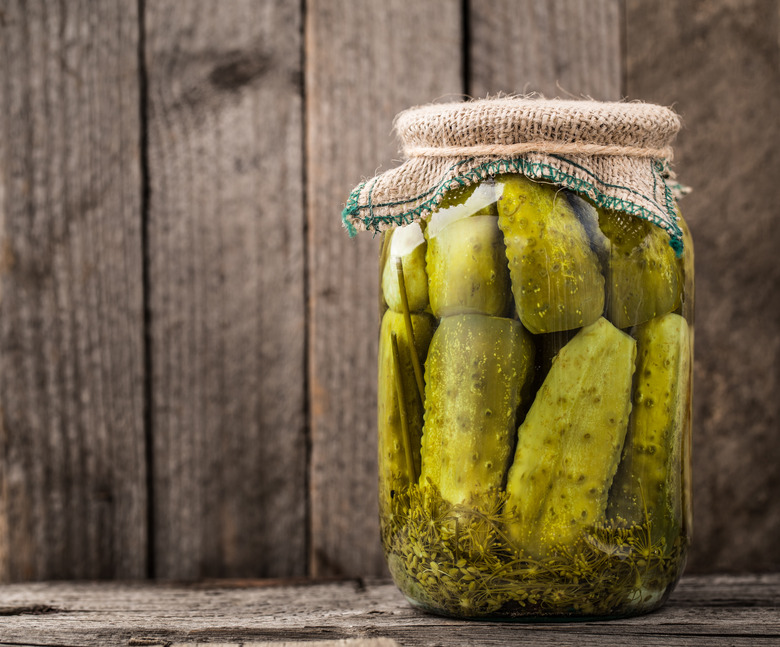White Vinegar & Isopropyl Alcohol Uses
White vinegar, or acetic acid, and isopropyl alcohol, or rubbing alcohol, are inexpensive and handy for use around the house. Both can be used for cleaning, and they're also fairly good disinfectants. Vinegar is edible, but isopropyl alcohol isn't. Isopropyl alcohol will burn, but vinegar won't.
Warning
Isopropyl alcohol, also known as rubbing alcohol, is poisonous. Do not ingest it.
Vinegar: From Pickles to Plastics
Vinegar: From Pickles to Plastics
Vinegar for home use is normally diluted to 5 percent acidity, giving it a pH of about 2.3 – 3.4. It can be made from fermenting apples, rice, corn, sugar and malt. Bacteria common in the air convert alcohol into acetic acid and water. Acetic acid has many industrial uses, ranging from food preparation to solvents to making plastics and fragrances. It helps to preserve foods by lowering their pH levels to inhibit or destroy bacteria, especially botulinum. It can also destroy bacteria on kitchen surfaces like counter tops and refrigerators, or utensils like dish brushes and sponges.
Vinegar's Uses Around the House
Vinegar's Uses Around the House
Beyond the kitchen, vinegar shows its versatility as a mild acid. Its antibacterial power can sanitize hard surfaces in the bathroom and laundry, or items like pet food and water bowls. It can remove tarnish from metals like brass and copper. Combined with baking soda, it makes a foaming, mildly abrasive cleaner that can also unclog drains. Combined with borax, it can help to clean laundry. But be careful not to combine vinegar with bleach, as this will create chlorine gas, which is poisonous.
Rubbing Alcohol is Good for More than Rubdowns
Rubbing Alcohol is Good for More than Rubdowns
Isopropyl alcohol serves as a disinfectant for minor wounds, and like vinegar, it's good for disinfecting hard surfaces around the house. It kills viruses, fungi and some bacteria, but not their spores. Because it evaporates quickly, it's excellent for cleaning glass, with less lingering aroma than vinegar. It dissolves oily and sticky grime in the kitchen and it's even used for cleaning grease and oil off mechanical and electrical parts. Like vinegar, it's "miscable" with water, meaning it can be diluted, and it also blends with other forms of alcohol for use in products like hand sanitizers.
Be Careful with Rubbing Alcohol
Be Careful with Rubbing Alcohol
Isopropyl alcohol has its hazards and drawbacks. It's flammable even at a 50 percent dilution with water, and like gasoline, its fumes can explode, making it dangerous around sources of ignition. It is also toxic for consumption, which includes not only drinking it, but exposure through skin, or breathing its fumes. Because it can dissolve gums and shellacs, it can damage many painted and varnished surfaces.
Cite This Article
MLA
Silbajoris, Alex. "White Vinegar & Isopropyl Alcohol Uses" sciencing.com, https://www.sciencing.com/white-vinegar-isopropyl-alcohol-uses-8104631/. 16 April 2018.
APA
Silbajoris, Alex. (2018, April 16). White Vinegar & Isopropyl Alcohol Uses. sciencing.com. Retrieved from https://www.sciencing.com/white-vinegar-isopropyl-alcohol-uses-8104631/
Chicago
Silbajoris, Alex. White Vinegar & Isopropyl Alcohol Uses last modified March 24, 2022. https://www.sciencing.com/white-vinegar-isopropyl-alcohol-uses-8104631/
